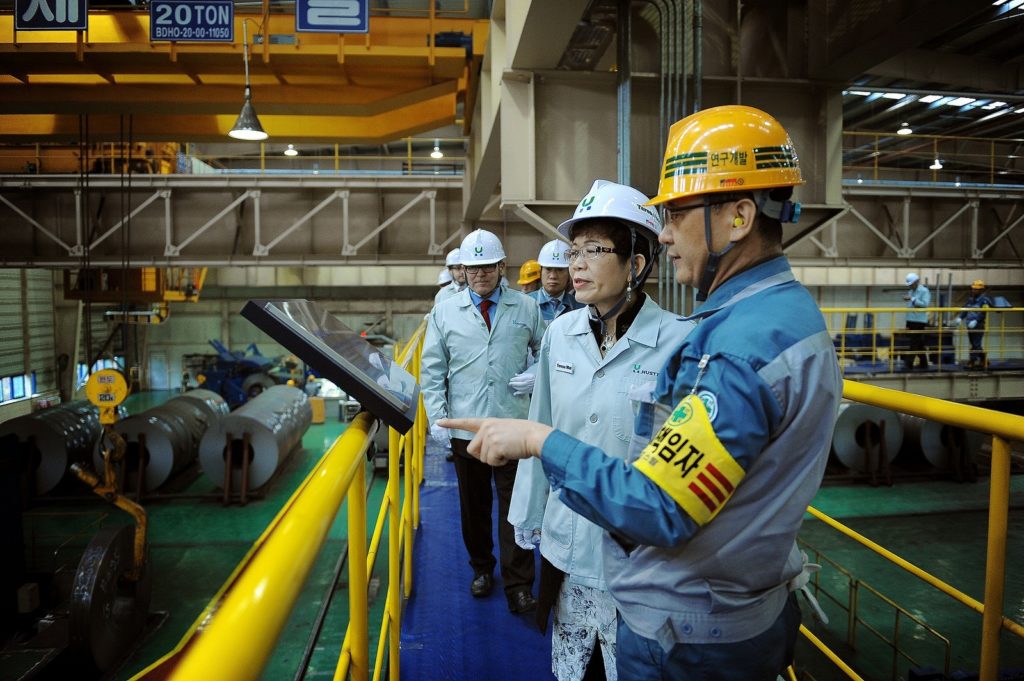The Peninsula
Tertiary Impact of Higher U.S. Tariffs Imposed on China

By Phil Eskeland
On Tuesday, the U.S. Trade Representative announced the imposition of higher tariffs on $200 billion of 5,745 imported products from the People’s Republic of China (PRC). The additional tariffs will start at 10 percent on September 24, 2018, and then escalate to 25 percent on January 1, 2019, in case negotiations with China do not produce the desired results sought by the Trump Administration.
Earlier this year, the Trump Administration imposed higher tariffs on $50 billion worth of imported Chinese products with the goal to eliminate China’s “harmful acts, policies and practices” in the areas of intellectual property, innovation, and technology transfer. However, China did not alter its industrial and trade policies to the satisfaction of the Trump Administration, which led to this most recent announcement. In response, China imposed its own set of higher tariffs against U.S. goods, primarily targeting agricultural products.
Previously, higher tariffs on $50 billion of Chinese goods did not target many products that contained inputs from South Korea. However, this current $200 billion list covers more consumer products, such as televisions, that may either be manufactured by a subsidiary of a Korean-owned firm in China or contains parts imported into China from Korea. President Donald Trump threatened again on Tuesday to impose even more tariffs on all imports from China if the PRC retaliated or was not forthcoming in any upcoming trade talks, including items that were initially exempted such as smartphones. Almost immediately, China hiked its tariffs on another $60 billion worth of U.S. exports and the Trump Administration will almost certainly be obligated to carry out the President’s threat to impose higher tariffs on all Chinese imports.
As discussed in a previous post, 42 percent of Korea’s economy is reliant on exports. South Korea’s largest trading partner is China. Because Korea exports 29 percent of its intermediate goods and 23 percent of capital goods to China, higher U.S. tariffs on Chinese products will also leave Korea’s economy vulnerable to this trade fight because many Chinese products incorporate parts from South Korea. For example, Samsung was estimated to be Apple’s top supplier for its iPhone in 2017, comprising more than 25 percent of the total bill of materials inside the phone, such as the display panel and memory chips. Apple’s iPhones are assembled in China.
In addition, U.S. trade action against China complicates the effort to denuclearize the Korean peninsula. Last year, President Trump offered to not go tough on China’s trade policies in return for cooperation on denuclearizing North Korea. Official goods trade between China and North Korea declined precipitously during the end of 2017 and early 2018, but in recent months, reports have surfaced of heightened economic activity between China and North Korea, particularly in areas that are not reported in official statistics,
As the U.S. proceeds with placing escalating tariffs on $200 billion of Chinese products (with threats to impose up to 25 percent tariffs on all $500+ billion of U.S. imports from China), the PRC may perceive this to be the final breach of good faith on the part of the United States and could lead to less vigorous enforcement of United Nations sanctions on North Korea by Chinese authorities. It could also have a tertiary effect on South Korea’s economy, which could become another irritant in U.S.-Korea relations. Already, Korea has had to deal with several hits to its economy because of trade actions by its ally, ranging from the higher U.S. tariffs on washing machines and solar panels to strict U.S. import quotas on its steel products. In addition, South Korea had to negotiate for the third time changes to its free trade agreement with the United States that put the burden of nearly all the revisions upon them and has to deal the looming threat of a possible arbitrary U.S. tariff of up to 25 percent on automobiles made in Korea that are exported to America.
Now there is potentially yet another large challenge facing South Korea because it is caught indirectly in the crosshairs of the U.S.-China trade dispute that not only could have negative implications for its economy, but also for its national security if China prematurely relaxes enforcement of sanctions against North Korea as a form of retaliation for the higher U.S. tariffs. Even President Trump implicitly recognized this reality on Tuesday when he said China “[has] been helpful [with North Korea]. I hope they’re still helpful” after he raised tariffs on their products.
There is a better way. The U.S. should instead focus its efforts on strengthening a united front with major trading partners, such as the European Union and Japan, at the World Trade Organization (WTO) to confront Chinese behavior on forced technology transfers, IP violations, and industrial subsidies to its state-owned enterprises (SOEs). When this action is successfully completed (objections by other countries against inconsistent Chinese trade practices have prevailed in all instances at the WTO when the complaint was fully pursued), then China would be required to change its domestic policies to respect IP and eliminate trade-illegal industrial subsidies or face the consequences of WTO-approved trade sanctions. It would have the side benefit of not negatively affecting the economy of a strong U.S. ally like South Korea and also not undermine the international sanctions regime designed to incentivize North Korea to denuclearize.
Phil Eskeland is Executive Director for Operations and Policy at the Korea Economic Institute of America. The views expressed here are his own.
Photo from the Province of British Columbia’s photostream on flickr Creative Commons.
